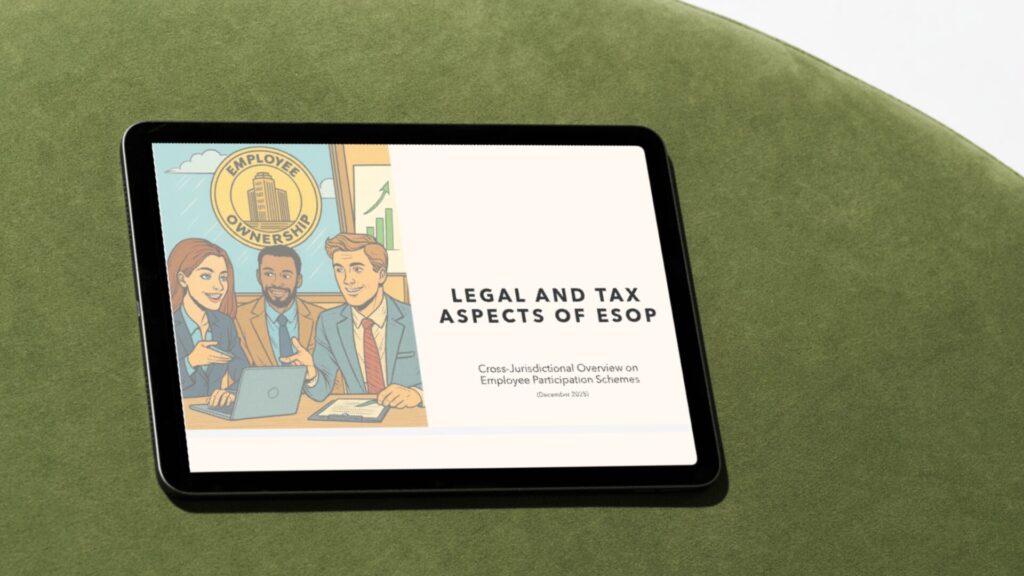Relocation of Foreign Employees to Portugal: Tax and Compliance Risks for Employers
Introduction
The relocation of foreign employees to Portugal has accelerated with the rise of remote work and the international mobility of highly skilled professionals. While this mobility can be strategically advantageous, it also creates a distinct set of tax and compliance exposures for foreign employers. The pressure points typically arise around permanent establishment (PE), corporate tax residence, social security coordination, payroll withholding and registration, and the practicalities of ongoing reporting. This article outlines the legal framework, identifies recurrent risk triggers in remote-work settings, and suggests governance measures that companies can adopt to reduce exposure.
Permanent Establishment: when a home office becomes a business presence
Portuguese domestic law and treaty practice—broadly aligned with OECD standards—recognise fixed place, dependent agent, and, under certain treaties, service PEs.
The proliferation of remote work means a home office can amount to a fixed place of business if, in substance, it is at the disposal of the enterprise and is used on a continuous basis for core business functions. Indicators include employer-driven relocation to Portugal, systematic reimbursement or control of the home workspace, and regular client interaction from that location.
Dependent agent risk can arise even without formal signing authority, where an employee in Portugal habitually plays the principal role leading to the conclusion of contracts that are approved abroad without material change.
In some treaties, a service PE may also be triggered by the furnishing of services in Portugal for a threshold duration, regardless of a fixed place.
Where a PE is recognised, Portugal may tax the profits attributable to that presence, with transfer-pricing-style attribution becoming central to the computation.
Corporate Residence: effective management follows substance
Under the Portuguese Corporate Income Tax Code, a company is deemed Portuguese tax resident if its registered office or its place of effective management (POEM) is in Portugal.
A single employee’s move rarely relocates the POEM. The risk grows, however, when senior executives or directors relocate and begin exercising strategic decision-making from Portugal—setting policy, directing operations, approving transactions or treasury movements, and holding board-level meetings from Portuguese territory.
In contested cases, contemporaneous evidence of where “mind and management” genuinely sit—agendas, minutes, approval trails, and implementation records—often proves decisive.
Social Security: coordination rules and practical coverage
As a rule, contributions are due where work is physically performed. Within the EU/EEA/Switzerland, Regulation (EC) No. 883/2004 and A1 certificates can maintain home-state coverage for temporary postings or multi-state workers. Outside the EU, bilateral agreements—where they exist—govern coverage. Absent such an agreement, Portuguese social security typically applies once work is habitually performed in Portugal, which means the foreign employer will need to obtain a Portuguese taxpayer number as non-tax resident, register with the Portuguese social security services and obtain a Portuguese social security number, and register the employment relationship.
In practice, employers should map mobility patterns early, determine whether an A1 certificate is available or Portuguese registration is required, and align contractual documentation with the chosen coverage.
Payroll Withholding and Employer Registration
Portuguese law imposes wage withholding on salaries paid for work performed in Portugal. Although administrative guidance has not always been uniform for foreign employers without a PE, the conservative, audit-resilient approach is to register as a wage payer in Portugal and to operate withholding and reporting accordingly. This entails obtaining a Portuguese tax number for the employer (and appointing a fiscal representative where required), registering with the Portuguese Tax Authority, running Portuguese payroll each month, and filing the requisite returns. Equity awards and global benefits must be synchronised with Portuguese payroll so that reportable and withholdable events are captured correctly.
Governance and Documentation
Risk management in this area is largely a matter of design and evidence. Foreign employers should ensure that the employee’s presence in Portugal is genuinely elective rather than employer-mandated, that negotiating and contract-concluding functions remain outside Portugal, and that board-level decision-making—including the locus of meetings and the implementation of resolutions—clearly occurs abroad.
IT architecture, approval pipelines, and customer-facing activity should be structured to avoid the appearance of a Portuguese centre of operations.
Periodic reviews—quarterly is a sensible cadence—can test PE thresholds under the relevant treaty, confirm that payroll and social security filings are accurate, and verify that corporate residence indicators have not drifted.
Conclusion
Relocating foreign employees to Portugal does not have to create a tax accident. When roles are carefully designed, decision-making centres remain clearly outside Portugal, and payroll and social security are implemented correctly, employers can accommodate international mobility with manageable risk.
The challenge, however, is dynamic: as hybrid and remote models solidify, audit scrutiny is increasing, and enforcement practices are evolving. Whether home-office footprints will be treated as the next frontier of permanent establishment—and, if so, how far that interpretation will extend—remains to be seen.
The coming audit cycle may supply the answer.Until then, prudent governance and disciplined documentation are the employer’s best defence.








































